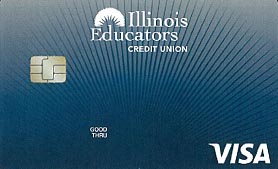The Beginner's Guide to Credit Cards

How credit cards work
When you use a credit card for a purchase, you’re borrowing money from the card issuer. You’ll repay some or all of it by the bill’s due date. At that time, the credit card company charges interest on your remaining balance. This amount of interest charged is determined by your card’s annual percentage rate, which refers to the annual cost of borrowing money with your credit card.
Applying for a credit card
First card? You might be best off starting with a secured credit card, which offers a modest line of credit. For this product, you’ll deposit funds to act as collateral in case of missed payments. However, if your payments are timely, you’ll get the deposit back after a predetermined amount of time. Then, you can close the account and open an unsecured credit card that doesn’t request a deposit for collateral.
As you consider your credit card options, look no further than your credit union. As member-owned cooperatives, credit unions consistently offer credit cards at lower interest rates than those issued by big banks.
Using your card
You can use your card to make purchases at any retailer that accepts your card, and charge up to the available credit limit on your card. However, to help keep your credit score high, it’s best to keep your credit utilization below 30% of the available credit.
Statements
You’ll get a credit card statement each month. It will include the following:
- Summary of transactions since the last billing cycle. This includes purchases, payments, balance transfers, cash advances, fees, interest payments and more.
- The balance from the previous billing cycle.
- The minimum payment due.
- The payment due date.
- The number of days in your billing period.
- Your credit limit and available credit.
- Available or redeemed rewards.
It’s important to review your statement for accuracy and note the bill’s due date so you don’t miss a payment.
Payments
If you pay your entire bill by its due date, you’ll avoid paying interest on the month’s charges and only pay the cost of the actual purchases. However, if you only make the minimum payment, interest will continue to accrue on the leftover balance.
Maintaining a high credit score
Here’s how to build your credit score and keep it high:
- Pay your bills on time.
- Pay more than just the minimum due.
- Keep your credit use low.
- Ask for a credit limit increase after nine months of responsible use.
- Keep your cards active.
« Return to "Blog"
